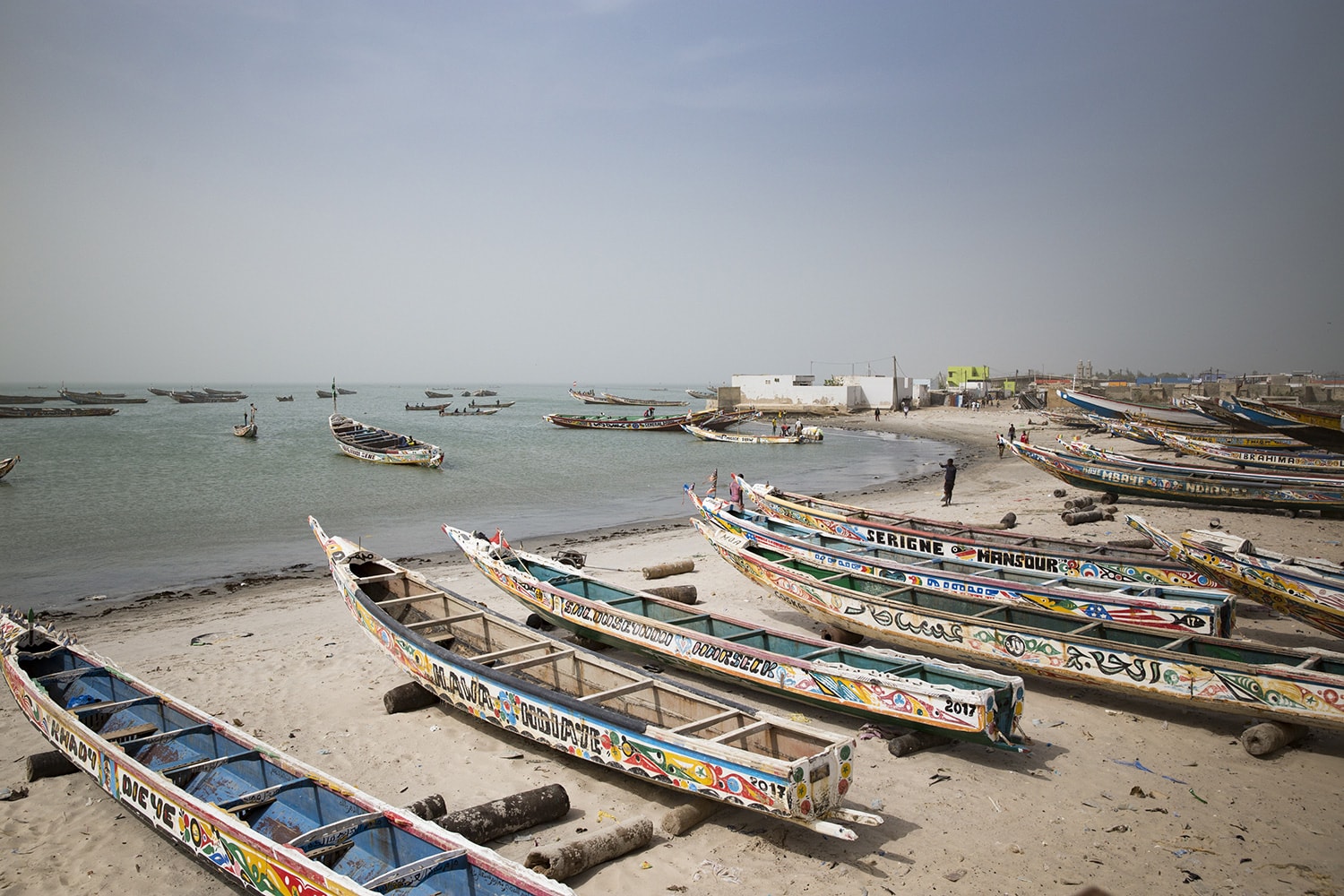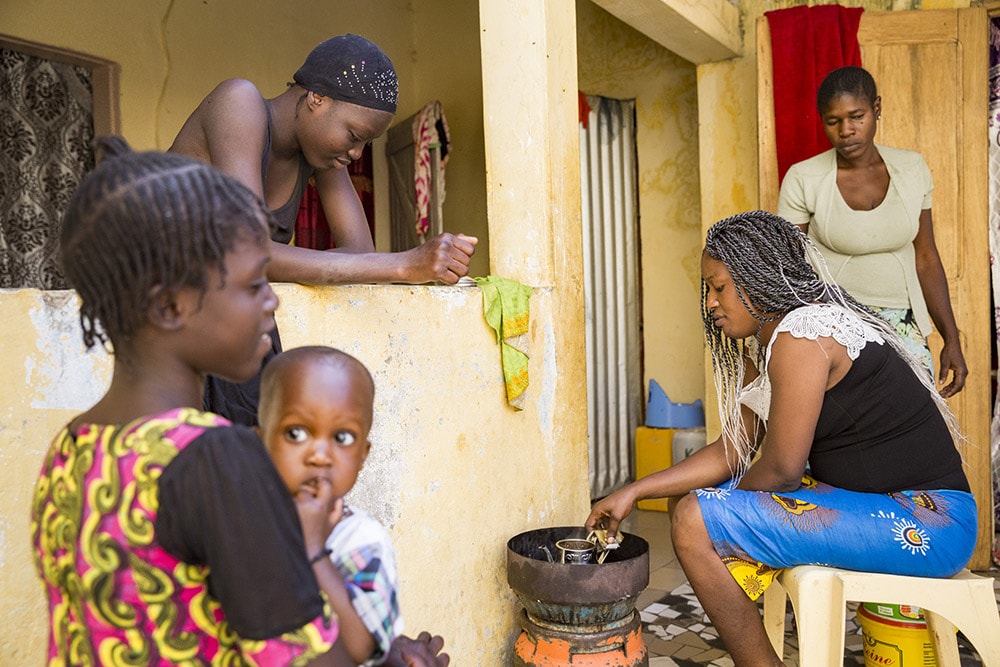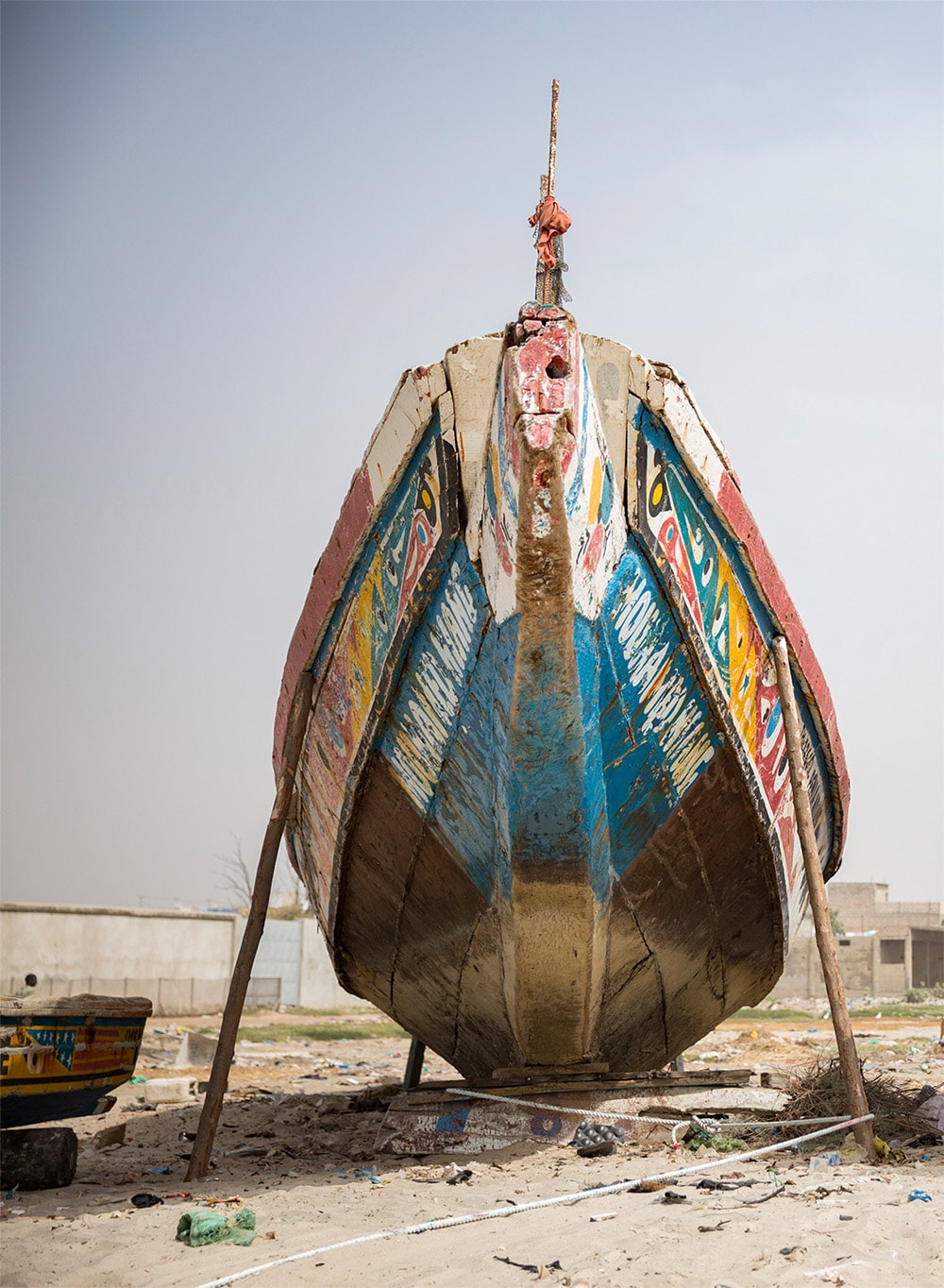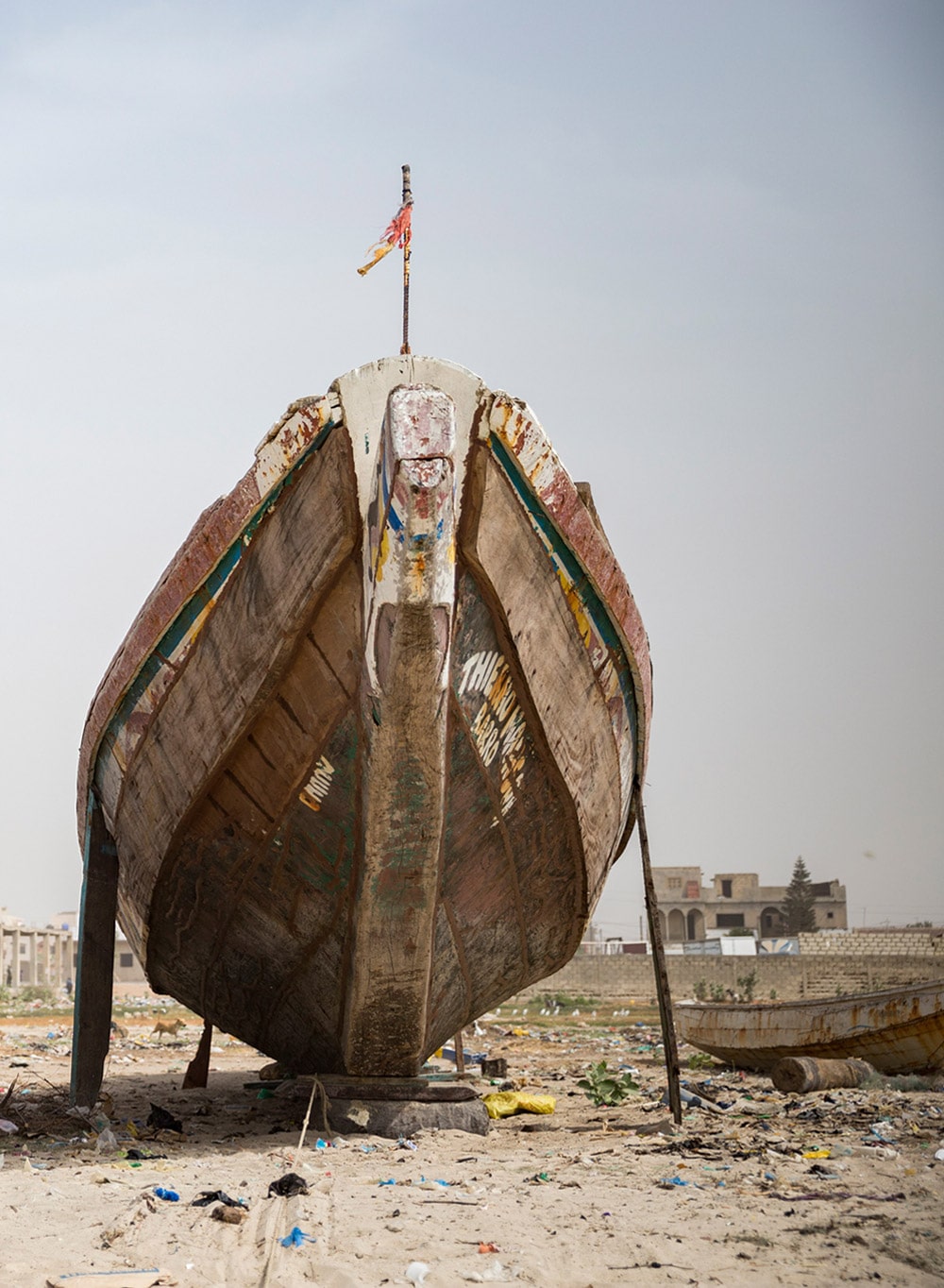The vast majority of Senegalese fishermen who have settled in Lorient come from Joal-Fadiouth, including Souleymane, Dieng and his cousin Omar Kane, who has returned home after a year away.
At the Kane house, everyone is busy preparing thiéboudienne, a traditional dish of rice and fish that the family eats every day for lunch.
“Thiof (white grouper) is exported to Europe or Dakar. We eat more common fish, like sardinella mackerel,” said Kane.
Still, this particular meal is special. Kane is celebrating his reunion with his wife and his infant son.
“If I manage to do what I want, I’ll be able to return home for good in two or three years. It’s hard to live away from your family. I would like to wake up here every day. Sometimes they tell you that your son isn’t doing well, and the problem can’t be solved by sending money,” he said.
Although Kane chose to go into his father’s line of work, he doesn’t want the same future for his son. “I’d like my son to become a football player. When he turns seven, I’ll take him to football school. I don’t want him to be a fisherman, that’s for sure. I think it’s a hard profession. It’s exhausting and increasingly unprofitable. I’d like him to pursue something else,” he said.

The beach at Joal-Fadiouth, Senegal’s main fishing port.

Omar shows photos of his life in France to his friend Sabasi, who has stayed behind.

As with many Senegalese families, several generations live under the same roof with their spouses and children.


Pirogues on the beach at Joal-Fadiouth.

Wrestling is a favourite pastime in Senegal. Some wrestlers from Joal-Fadiouth used to work as fishermen.
One of Kane’s brothers, Sakura, has also left home. His wife, Fatou, lives at his family’s home, where she awaits his return.
“It’s hard to be the wife of a fisherman who doesn’t live in his own country. I haven’t seen my husband for a year, we only speak online. And it’s because of poverty. When he was here, he couldn’t help anyone. But when he went to France, he could. It’s an act of bravery to leave your family and your wife and children to emigrate,” she said.
The money that Kane sends home every month feeds his family and supports his youngest brother, who struggles to make a living in the local fishing industry…
“I often go for walks along the port. Every conversation revolves around how expensive the equipment is and the dwindling supply of fish. Many people would like to leave, they think this profession has an uncertain future,” said Kane.
Kane’s father weighed in on the issue as he ate a plate of thiéboudienne.
“I was a fisherman in my time, and none of this existed then. We brought back enough beautiful fish to feed the whole family. Young people today don’t know how to fish. They are plundering what God has given them!”
Kane summed up the situation with a dash of bravado: “The Senegalese are fighters and adventurers. You can find us in all of our neighbouring countries, and in ports in Spain, France and even Italy. They always go where there’s fish.”
“It’s hard to be the wife of a fisherman who doesn’t live in his own country. I haven’t seen my husband for a year, we only speak online. And it’s because of poverty. When he was here, he couldn’t help anyone. But when he went to France, he could. It’s an act of bravery to leave your family and your wife and children to emigrate,” she said.
The money that Kane sends home every month feeds his family and supports his youngest brother, who struggles to make a living in the local fishing industry…
“I often go for walks along the port. Every conversation revolves around how expensive the equipment is and the dwindling supply of fish. Many people would like to leave, they think this profession has an uncertain future,” said Kane.
Kane’s father weighed in on the issue as he ate a plate of thiéboudienne.
“I was a fisherman in my time, and none of this existed then. We brought back enough beautiful fish to feed the whole family. Young people today don’t know how to fish. They are plundering what God has given them!”
Kane summed up the situation with a dash of bravado: “The Senegalese are fighters and adventurers. You can find us in all of our neighbouring countries, and in ports in Spain, France and even Italy. They always go where there’s fish.”



